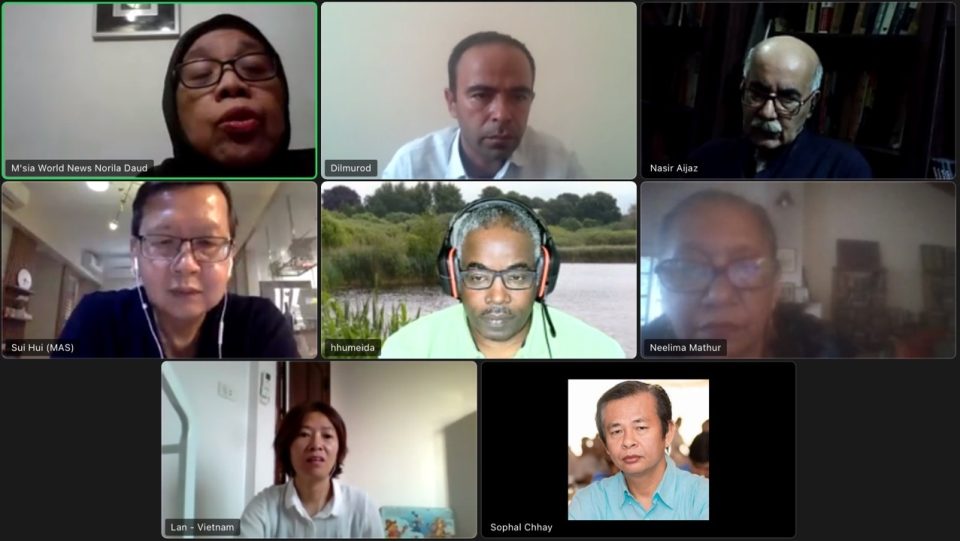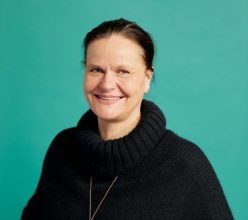AJA: An Open Community Beyond Borders and Cultures
Asia Journalist Association (AJA), founded in 2004, is an international journalist association that operates under the motto of “One Line of Truth through Sweat and Blood” with the goal of fair reporting, protecting freedom of the press, and developing journalism. To commemorate its 20th anniversary, AJA is sharing special feature articles that look back on the association’s 20-year history and key events within the last 20 years in AJA member countries. THE AsiaN, an outlet based on the AJA network, is reporting 10 special articles marking the 20th anniversary of the founding of AJA every Tuesday and Friday starting April 15, 2025. – Editor’s note

The past 20 years of the Asia Journalist Association (AJA) stand as a testament to tireless dedication and unwavering passion. Founded two decades ago, AJA went on to launch THE AsiaN and Magazine N seven and nine years later, respectively. I would like to begin by expressing my sincere gratitude to the founder, Lee Sang-ki. These milestones were made possible thanks to his unwavering determination, energy, and the support of the young staff at the AJA office.
Lee Sang-ki has consistently sought to enhance journalism by exchanging ideas with fellow journalists from across the globe—particularly in Asia. He motivates others to collaborate by sharing meaningful messages and powerful, concise words. I believe his ultimate vision encompasses peace, human rights, press freedom, and the qualitative improvement of journalism.
There’s something he frequently asks of me. As a professor based in Kiel, Germany—originally from the once-divided country of Sudan—he encourages me to write an article or column that could contribute to the dialogue on Korean unification, drawing from my experiences in Sudan and Germany. After some persistent requests, I decided to accept. I plan to develop the piece through interviews or surveys with my German students.
Returning to AJA—although I was born in Africa and now work in Germany, I have no direct geographical connection to Asia. Even so, AJA welcomed me wholeheartedly and continues to treat me as a close friend. Several other members from European countries are also active in AJA, which I believe reflects the organization’s open-mindedness and forward-looking spirit.
Following Founder President Lee Sang-ki, the leadership passed to Ivan Lim from Singapore and Ashraf Aboul-Yazid from Egypt. Currently, Sophal Chhay from Cambodia is serving as President.
AJA has established and operates through an Executive Committee. The committee includes President Sophal Chhay (Cambodia), and five Vice Presidents: Seok-jae Kang (East Asia, Korea), Norila Daud (Southeast Asia, Malaysia), Sathasivam Leo Nirosha Darshan (South Asia, Sri Lanka), Kuban Abdymen (Central Asia, Kyrgyzstan), and Pooneh Nedai (West Asia, Iran). Nurjan Kasmalyeva from Kyrgyzstan also serves as an executive member. What struck me most was that all these leadership positions are elected—something quite rare among media organizations globally.
Over the years, AJA and THE AsiaN have lost cherished members and writers. Among them are Alin Ferrer (Philippines), Nasir Yusoff (Malaysia), and Pramod Mathur (India). Their absence is deeply felt. Yet I believe the remaining members, with their strong sense of professionalism and deep camaraderie, will honor their legacy.

Since the COVID-19 pandemic, AJA has held monthly Zoom meetings. These virtual gatherings bring together members ranging from their early 30s to their mid-70s, where they share diverse perspectives on media, politics, economics, society, and culture in their respective countries. Notably, Habib Toumi and Seok-jae Kang play a central role in organizing and moderating these meetings seamlessly with the help of active members.
This year, around July, AJA is planning to introduce Russian and Sindhi editions. Kuban Abdymen from Kyrgyzstan and Nasir Aijaz from Pakistan are leading the preparations. These new editions could potentially add over 500 million new readers to THE AsiaN, beyond its English-language audience. I believe this expansion represents a major step toward AJA’s continued relevance in a rapidly changing world.
Despite rapid technological and economic development, today’s world is still marred by wars in the Middle East and Eurasia, along with grave human rights violations—issues that demand media attention. As someone once said, it feels like a “dark, endless tunnel” that disappears and reappears. I believe this is due to a lack of philosophical and spiritual development amid runaway material advancement. AJA members, I believe, are well-positioned to lead a kind of spiritual renewal through journalism.
I speak with confidence. Even in South Korea—a nation often seen as a democratic role model—there have been troubling threats to democracy and press freedom. In February 2025, AJA issued an official statement addressing these concerns. The following month, President Sophal Chhay and former Vice President Eddy Suprapto held a press conference at the Korea Press Center. Seeing news of the event here in Germany made me proud, and I eagerly shared it with my students.
A significant turning point for AJA came in the second half of 2024, when a new constitution was adopted. Since then, AJA has been actively expanding its reach by welcoming new members. What sets it apart is that member engagement, passion, and solidarity are prioritized over sheer numbers.
One of my hopes is for THE AsiaN’s Arabic edition—which is currently on hiatus—to be revived. It once provided valuable news and insights on politics, economy, society, culture, and sports across the Arab world. I believe this edition is a vital bridge between AJA and the Arab-speaking community and could once again serve as a channel for sharing the region’s hidden gems with the rest of the world.
AJA also plans to introduce a new section that compiles brief commentary from Asia. Each contribution will summarize local issues in three sentences or less. I, too, intend to contribute news updates from Germany, Sudan—my birthplace—and other regions of Africa through THE AsiaN. As I mentioned earlier, I am confident that AJA will continue to grow into a global media model through bold ideas, relentless pursuit, and meaningful collaboration. Celebrating significant national anniversaries and sharing them in concise, meaningful ways with readers could become another milestone for AJA’s journey.
(To be continued)
Related Articles : Asia Journalist Association 20th anniversary special feature articles – THE AsiaN
AJA born of a meeting of minds – THE AsiaN
AJA and My Seven Sojourns in Korea – THE AsiaN
“A bridge connecting Asia and the world, AJA’s journey is ongoing” – THE AsiaN
AJA: An Open Community Beyond Borders and Cultures – THE AsiaN
More freedom and movements towards greater democracy in Malaysia – THE AsiaN
Cambodia Hosts First-Ever Regional Games in History – THE AsiaN
The rise and fall of fighting corruption in Indonesia – THE AsiaN
Political instability brought about by the first political revolution – THE AsiaN
Uzbek President delivers historic speech in native language at the 2023 UN General Assembly – THE AsiaN
Georgia in its existential struggles for the last twenty years – THE AsiaN




